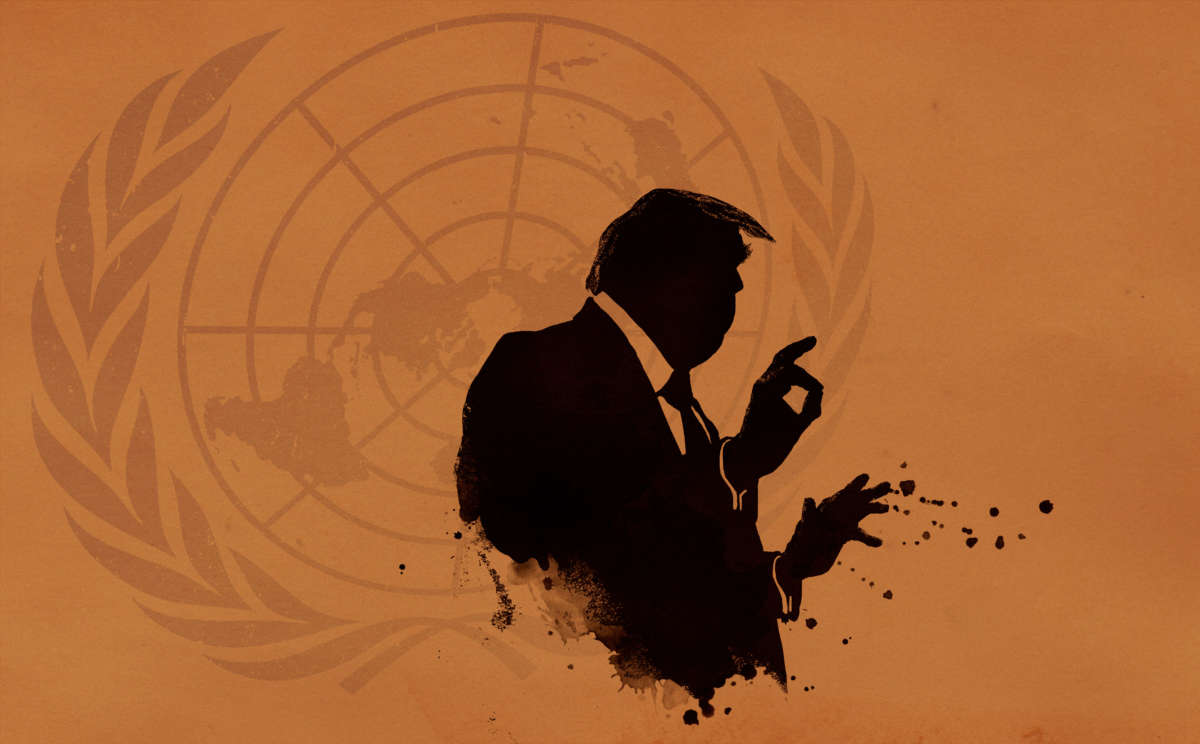Support justice-driven, accurate and transparent news — make a quick donation to Truthout today!
The pardoning of four Blackwater mercenaries by President Donald Trump earlier this month was an action that violated international law, a group of experts at the United Nations (UN) said on Wednesday.
Trump pardoned the four contractors — Nicholas Slatten, who was convicted of first-degree murder, as well as Paul Slough, Evan Liberty and Dustin Heard, all three who were convicted of voluntary and attempted manslaughter — as part of more than a dozen pardons and commutations last week.
Those contractors were convicted for opening fire on a crowd and killing a number of individuals in 2007 in what has become known as the Nisour Square Massacre in Baghdad, Iraq. Seventeen unarmed Iraqi citizens were killed in total.
The youngest victim in that shooting, Ali Kinani, was just 9 years old when he was killed by the four Blackwater contractors. His father, Mohammed Kinani, recounted the scene he witnessed when the massacre happened.
“When one man tried to run, they shot him,” Kinani said in a Democracy Now! interview from 2010. “He dropped dead on the spot. He was on the ground bleeding, and they were shooting nonstop. They shot like they were trying to kill everyone they could see.”
Due to how vicious and criminal these men’s actions were, members of the UN condemned Trump’s decision to pardon them, describing his actions as criminal while doing so.
“Pardoning the Blackwater contractors is an affront to justice and to the victims of the Nisour Square massacre and their families,” Jelena Aparac, chair of a UN working group on the use of mercenaries, said on Wednesday of Trump’s pardoning of the four Blackwater contractors.
The president of the United States has tremendous leeway when it comes to whom they may pardon. However, many scholars believe there are still limits to the pardon power, particularly when it comes to consideration for other laws — including international agreements and treaties, which are treated as “the supreme law of the land” according to the U.S. Constitution.
In that respect, it’s possible that Trump violated the Geneva Conventions when he pardoned these four individuals, as member states to that agreement are responsible for holding war criminals in their own country accountable for their actions.
Private contractors or mercenaries are included in those Geneva Conventions agreements.
There are grave consequences, according to those agreements, for not adhering to this rule — ignoring or curtailing punishments for war criminals will likely encourage other nations, for instance, to hire private contractors in order to break the spirit of the international agreement.
With that in mind, the pardons are in violation of “U.S. obligations under international law,” and will “undermine humanitarian law and human rights at a global level,” Aparac said.
“Ensuring accountability for such crimes is fundamental to humanity and to the community of nations,” Aparac elaborated, adding that “pardons, amnesties, or any other forms of exculpation for war crimes open doors to future abuses when States contract private military and security companies for inherent state functions.”
Marjorie Cohn, professor emerita at Thomas Jefferson School of Law and deputy secretary general of the International Association of Democratic Lawyers, expressed similar sentiments. Cohn, speaking directly to Truthout about the matter, also said that Trump should have pardoned WikiLeaks founder Julian Assange for his role in revealing other atrocious actions of the U.S. military in years’ past.
“The Geneva Conventions require that States hold war criminals accountable,” Cohn said. “Yet Trump pardoned four war criminals but indicted Julian Assange for revealing evidence of U.S. war crimes in Iraq.”
Cohn continued:
Assange published the ‘Collateral Murder’ video, which depicts U.S. soldiers killing 18 civilians, in violation of the Geneva Conventions. Trump should dismiss the indictment against Assange and grant him a full pardon.
Press freedom is under attack
As Trump cracks down on political speech, independent media is increasingly necessary.
Truthout produces reporting you won’t see in the mainstream: journalism from the frontlines of global conflict, interviews with grassroots movement leaders, high-quality legal analysis and more.
Our work is possible thanks to reader support. Help Truthout catalyze change and social justice — make a tax-deductible monthly or one-time donation today.
